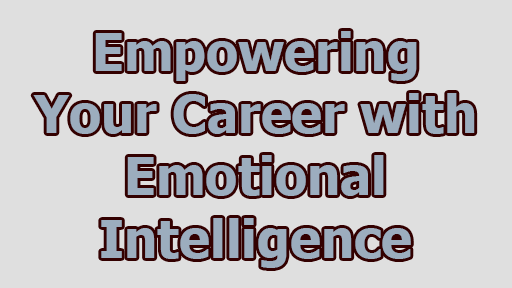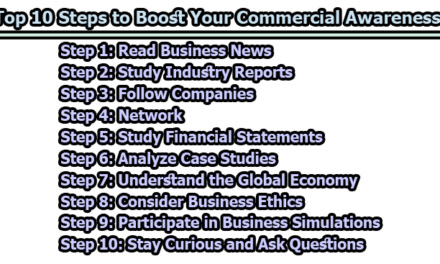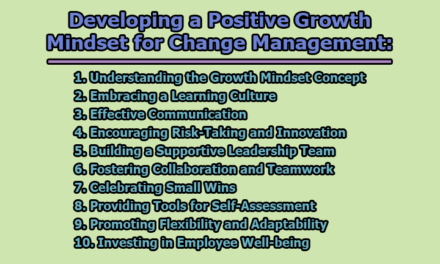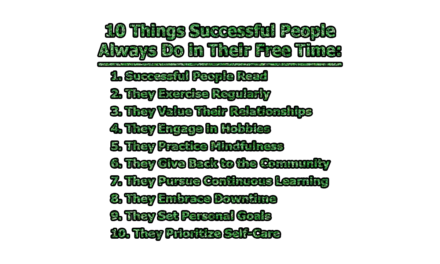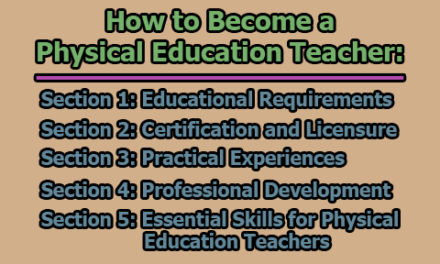Empowering Your Career with Emotional Intelligence:
In the ever-changing landscape of the professional world, career success demands more than just academic qualifications and technical expertise. Employers seek individuals who possess a unique and invaluable skill set: emotional intelligence (EI or EQ). Emotional intelligence encompasses the ability to recognize and manage one’s emotions, understand the feelings of others, and adapt behaviors accordingly. It involves self-awareness, empathy, and effective communication. Although the concept of emotional intelligence gained popularity through the works of Daniel Goleman in the 1990s, its relevance in the workplace has grown exponentially. This article delves into the significance of emotional intelligence in the professional arena, how it can benefit individuals at all stages of their careers, and practical ways to develop and harness this essential skill. Empowering your career with emotional intelligence.
The Power of Emotional Intelligence in the Workplace:
Emotional intelligence plays a crucial role in a wide array of professions, from people-oriented roles in HR and health professions to leadership positions and customer service. However, its value extends to every graduate entering the workforce, regardless of their field.
1. Enhancing Communication and Building Strong Relationships: One of the most significant benefits of emotional intelligence in the workplace is its impact on communication and relationship-building. Individuals with high emotional intelligence possess strong interpersonal skills, making them adept at connecting with others on a deeper level. They are effective listeners, paying attention to not just the words being spoken, but also the emotions underlying them. This heightened level of understanding allows them to respond with empathy and sensitivity, fostering trust and rapport with colleagues, clients, and superiors.
Moreover, emotionally intelligent professionals are skilled at reading nonverbal cues, such as body language and facial expressions, providing them with valuable insights into others’ emotions and reactions. As a result, they can tailor their communication styles to suit the emotional needs of different individuals, ensuring that messages are delivered in a way that resonates with recipients.
2. Promoting Teamwork and Collaboration: In team-based environments, emotional intelligence is a catalyst for promoting effective teamwork and collaboration. Emotionally intelligent team members possess the ability to manage conflicts and disagreements with grace, avoiding unnecessary tension and disruptions. Instead of resorting to confrontations, they seek to understand the perspectives of others, facilitating constructive discussions and problem-solving.
Furthermore, emotionally intelligent individuals are approachable and understanding, which creates an atmosphere of psychological safety within the team. Team members feel comfortable expressing their ideas and concerns, knowing that they will be listened to and respected. This open and supportive environment fosters creativity, innovation, and mutual respect among team members, leading to higher levels of productivity and job satisfaction.
3. Influencing and Persuasion: Emotionally intelligent professionals excel at influencing and persuading others. Understanding the emotions and concerns of stakeholders enables them to craft messages that resonate with their audience. They can anticipate objections and address them with empathy, making their proposals more compelling and persuasive.
Additionally, emotionally intelligent individuals recognize the power of emotional appeal in decision-making. By connecting with others on an emotional level, they create a sense of shared purpose and commitment, making it easier to garner support for their ideas and initiatives.
4. Resilience and Personal Growth: Workplaces are not immune to stress and challenges. However, emotionally intelligent professionals are better equipped to navigate such situations with resilience. They can manage their emotions effectively, preventing negative emotions from clouding their judgment or affecting their interactions with others.
Moreover, emotional intelligence promotes self-awareness, enabling individuals to recognize their strengths and areas for improvement. This awareness allows them to seek continuous personal growth and development, actively seeking opportunities to enhance their skills and knowledge.
Harnessing Emotional Intelligence in Career Advancement:
Emotional intelligence becomes particularly crucial during career advancement, job transitions, and leadership roles. Professionals who can leverage their emotional intelligence are better equipped to navigate challenges and seize opportunities for growth.
a. Leadership Development: Emotional intelligence plays a transformative role in leadership development. A successful leader is not just someone who possesses technical expertise, but also someone who can effectively manage and inspire a team. Emotionally intelligent leaders are attuned to the needs and emotions of their team members, promoting a supportive and positive work environment.
Leaders with high emotional intelligence can effectively handle conflicts and challenging situations with sensitivity and empathy. This ability to manage emotions and address concerns diplomatically fosters a culture of open communication and cooperation, creating a more cohesive and high-performing team.
Emotionally intelligent leaders are also adept at motivating and empowering their team members. They recognize the value of individual contributions and provide constructive feedback and support. This fosters a sense of trust and confidence among team members, leading to improved productivity and employee engagement.
b. Relationship Building: Building strong professional relationships is integral to career advancement. Emotional intelligence is a powerful tool that enables professionals to connect with others on a deeper level, forming genuine and lasting connections. These relationships can open doors to new opportunities, collaborations, and career growth.
Emotionally intelligent individuals excel in active listening, which involves not just hearing words but understanding the underlying emotions and perspectives of others. This empathetic approach to communication fosters trust and rapport, making it easier to build meaningful relationships in the workplace.
In networking situations, emotional intelligence allows professionals to read social cues and adapt their communication style to suit the emotional needs of different individuals. This ability to connect with others on an emotional level makes networking more effective and authentic.
c. Communication Skills: Effective communication is fundamental to career advancement, particularly as individuals move into leadership and managerial roles. Emotionally intelligent professionals are skilled communicators who tailor their messages to resonate with their audience’s emotions and perspectives.
They are adept at recognizing the emotional state of their audience and adjust their communication style accordingly. This ensures that messages are delivered in a way that is impactful and easily understood by others.
Moreover, emotionally intelligent professionals are open to feedback and constructive criticism. They create a safe and supportive environment for open communication, which fosters better teamwork and idea-sharing among colleagues.
d. Conflict Resolution: As professionals advance in their careers, they may encounter complex conflicts and challenging situations. Emotional intelligence equips individuals with the ability to manage conflicts with grace and understanding.
Emotionally intelligent professionals seek win-win solutions, focusing on preserving relationships and promoting cooperation. Rather than approaching conflicts with hostility or defensiveness, they maintain a calm and composed demeanor, seeking common ground and collaborative solutions.
This approach to conflict resolution not only resolves immediate issues but also strengthens relationships and fosters a positive work environment. It demonstrates emotional maturity and the ability to manage emotions under pressure, which are highly regarded qualities in leadership and career advancement.
Developing Emotional Intelligence:
Emotional intelligence is not a fixed trait; rather, it is a skill that can be honed and developed with dedication and practice. Here are practical ways to cultivate emotional intelligence:
i. Cultivating Self-Awareness: The foundation of emotional intelligence lies in self-awareness – the ability to recognize and understand one’s own emotions, triggers, and behavioral patterns. Developing self-awareness involves regularly reflecting on emotions, reactions, and thoughts in various situations.
- Journaling: Keeping a journal can be a helpful tool to track emotional responses and identify recurring patterns. By documenting emotions and the circumstances surrounding them, individuals can gain insights into their emotional tendencies and areas for improvement.
- Seeking Feedback: Soliciting feedback from trusted friends, mentors, or colleagues can provide valuable insights into blind spots and areas where emotional intelligence can be strengthened. Accepting constructive feedback with an open mind is essential for growth.
ii. Enhancing Empathy: Empathy is a core component of emotional intelligence, allowing individuals to understand and connect with the feelings and experiences of others. Cultivating empathy involves stepping into others’ shoes and actively listening to their perspectives without judgment.
- Active Listening: Practicing active listening involves giving full attention to others during conversations, seeking to understand their emotions, and validating their experiences. Avoid interrupting or jumping to conclusions during discussions.
- Seeing from Others’ Perspectives: Engaging in perspective-taking exercises helps individuals understand different viewpoints. Imagining the feelings and thoughts of others fosters empathy and promotes understanding in interpersonal interactions.
iii. Developing Effective Communication Skills: Emotionally intelligent individuals possess strong communication skills, enabling them to express themselves clearly and navigate challenging conversations with sensitivity.
- Assertive Communication: Emphasizing assertive communication, where individuals express their needs and emotions while respecting others’ feelings, helps in avoiding misunderstandings and conflicts.
- Nonverbal Communication: Paying attention to nonverbal cues, such as body language and tone of voice, enhances communication effectiveness. Matching nonverbal cues to verbal messages ensures congruence and authenticity.
iv. Practicing Emotional Regulation: Emotional regulation is the ability to manage emotions appropriately and respond to situations in a controlled manner. Developing emotional regulation techniques is essential for handling stressful or emotionally charged scenarios.
- Mindfulness: Engaging in mindfulness practices, such as meditation or deep breathing, helps individuals stay present and calm during challenging situations.
- Positive Coping Strategies: Identifying healthy coping mechanisms to manage stress and negative emotions is vital for emotional well-being. Activities such as exercise, hobbies, or spending time with loved ones can be effective stress relievers.
v. Building Healthy Relationships: Emotionally intelligent individuals prioritize building and nurturing healthy relationships, as they understand the significance of interpersonal connections in personal and professional life.
- Empathy in Relationships: Applying empathy in relationships fosters trust, understanding, and mutual support. Recognizing others’ emotional needs and being responsive strengthens bonds.
- Conflict Resolution: Embracing constructive conflict resolution approaches promotes harmonious relationships. Addressing conflicts with empathy and respect preserves relationships and promotes open communication.
From the above discussion, we can say that emotional intelligence is a powerful tool that empowers individuals to thrive in their careers and create positive impacts in the workplace. As employers increasingly recognize the value of EI, it becomes imperative for professionals to develop this essential skill throughout their careers. By mastering emotional intelligence, individuals can communicate effectively, build meaningful relationships, and navigate challenges with grace and resilience. Ultimately, empowering one’s career with emotional intelligence opens the door to boundless opportunities for personal growth, leadership, and professional success.
Frequently Asked Questions [FAQs]:
What is emotional intelligence (EI) and how does it relate to career success?
Emotional intelligence, often referred to as EI or EQ, is the ability to recognize, understand, and manage emotions in oneself and others. In the context of career success, emotional intelligence plays a crucial role in communication, relationship-building, leadership, and decision-making. It enables professionals to navigate workplace challenges effectively, build strong connections with colleagues and clients, and demonstrate empathy and understanding in their interactions.
How can emotional intelligence benefit me in the workplace?
Emotional intelligence can benefit you in various ways in the workplace. It enhances your communication skills, making you an effective and empathetic communicator. It also enables you to build positive and meaningful relationships with colleagues, leading to a more harmonious and productive work environment. Emotional intelligence is vital for leadership development, as it empowers you to inspire trust, motivate teams, and handle conflicts with grace and understanding. Additionally, emotional intelligence helps you navigate stressful situations and maintain resilience, leading to improved overall performance and job satisfaction.
Can emotional intelligence be learned and developed?
Yes, emotional intelligence is a skill that can be learned and developed over time. While some individuals may naturally possess higher emotional intelligence, everyone has the potential to improve this aspect of themselves. Engaging in self-awareness exercises, seeking feedback, practicing empathy, and developing effective communication are some of the ways to cultivate emotional intelligence. Consistent effort and mindfulness in daily interactions contribute to the growth of emotional intelligence.
How can emotional intelligence impact career advancement?
Emotional intelligence is a powerful tool for career advancement. As professionals move into leadership and managerial roles, emotional intelligence becomes increasingly crucial for building strong teams, motivating employees, and resolving conflicts effectively. Emotionally intelligent leaders inspire trust and loyalty, which can open doors to new opportunities and career growth. Furthermore, emotional intelligence contributes to a positive professional reputation, making individuals stand out as exceptional team players and leaders.
Can emotional intelligence be assessed or measured by employers during the hiring process?
While some employers may explicitly assess emotional intelligence during the hiring process, it is often indirectly evaluated through various aspects of a candidate’s performance. Employers look for qualities such as effective communication, teamwork, adaptability, and empathy, all of which are influenced by emotional intelligence. Behavioral interview questions, situational judgment tests, and group exercises during assessment centers are examples of how employers may indirectly gauge emotional intelligence in candidates.
How can I develop my emotional intelligence?
Developing emotional intelligence involves a combination of self-reflection, practice, and seeking opportunities to build relationships and empathize with others. Engaging in mindfulness exercises, active listening, and seeking feedback are effective ways to enhance self-awareness and empathy. Practicing assertive communication and conflict resolution can help improve emotional regulation and communication skills. Additionally, participating in team projects, volunteer work, or mentoring opportunities can provide real-world situations to practice and refine emotional intelligence.
Can emotional intelligence be useful in different industries and job roles?
Absolutely. Emotional intelligence is valuable in virtually any industry and job role that involves interactions with people. Whether you work in healthcare, finance, marketing, education, or any other field, emotional intelligence can enhance your performance, leadership abilities, and overall job satisfaction. From customer service representatives to CEOs, emotional intelligence is a secret ingredient for success in all career paths.

Library Lecturer at Nurul Amin Degree College

